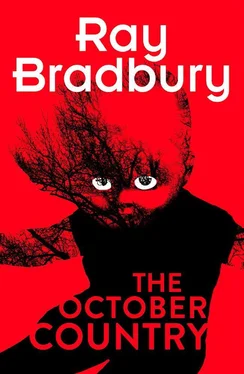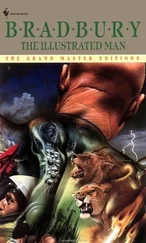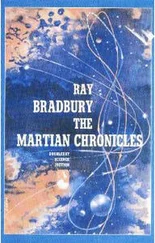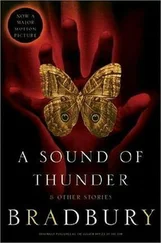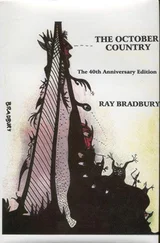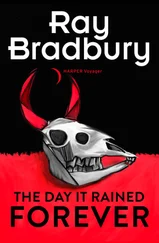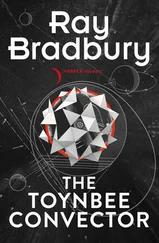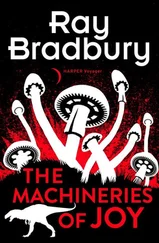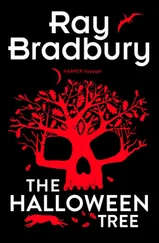His subconscious provided shopping lists.
Beer. It’s unimaginative.
Pretzels. Delightfully “passè.”
Stop by Mother’s. Pick up Maxfield Parrish painting, the flyspecked, sunburnt one. Lecture on same tonight.
By December Mr. Garvey was really frightened.
The Cellar Septet was now quite accustomed to Milton Berle and Guy Lombardo. In fact, they had rationalized themselves into a position where they acclaimed Berle as really too rare for the American public, and Lombardo was twenty years ahead of his time; the nastiest people liked him for the commonest reasons.
Garvey’s empire trembled.
Suddenly he was just another person, no longer diverting the tastes of friends, but frantically pursuing them as they seized at Nora Bayes, the 1917 Knickerbocker Quartette, Al Jolson singing “Where Did Robinson Crusoe Go With Friday on Saturday Night,” and Shep Fields and his Rippling Rhythm. Maxfield Parrish’s rediscovery left Mr. Garvey in the north pasture. Overnight, everyone agreed, “Beer’s intellectual. What a shame so many idiots drink it.”
In short, his friends vanished. Alexander Pape, it was rumored, for a lark, was even considering hot water for his cold-water flat. This ugly canard was quashed, but not before Alexander Pape suffered a comedown among the cognoscenti.
Garvey sweated to anticipate the shifting taste! He increased the free food output, foresaw the swing back to the Roaring Twenties by wearing hairy knickers and displaying his wife in a tube dress and boyish bob long before anyone else.
But, the vultures came, ate, and ran. Now that this frightful Giant, TV, strode the world, they were busily re-embracing radio. Bootlegged 1935 transcriptions of Vic and Sade and Pepper Young’s Family were fought over at intellectual galas.
At long last, Garvey was forced to turn to a series of miraculous tours de force, conceived and carried out by his panic-stricken inner self.
The first accident was a slammed car door.
Mr. Garvey’s little fingertip was neatly cut off!
In the resultant chaos, hopping about, Garvey stepped on, then kicked the fingertip into a street drain. By the time they fished it out, no doctor would bother sewing it back on.
A happy accident! Next day, strolling by an oriental shop, Garvey spied a beautiful objet d’art. His peppy old subconscious, considering his steadily declining box office and his poor audience-rating among the avant-garde, forced him into the shop and dragged out his wallet.
“Have you seen Garvey lately!” screamed Alexander Pape on the phone. “My God, go see!”
“What’s that?”
Everyone stared.
“Mandarin’s finger-guard.” Garvey waved his hand casually. “Oriental antique. Mandarins used them to protect the five-inch nails they cultivated.” He drank his beer, the gold-thimbled little finger cocked. “Everyone hates cripples, the sight of things missing. It was sad losing my finger. But I’m happier with this gold thing-amajig.”
“It’s a much nicer finger now that any of us can ever have.” His wife dished them all a little green salad. “And George has the right to use it.”
Garvey was shocked and charmed as his dwindling popularity returned. Ah, art! Ah, life! The pendulum swinging back and forth, from complex to simple, again to complex. From romantic to realistic, back to romantic. The clever man could sense intellectual perihelions, and prepare for the violent new orbits. Garvey’s subconscious brilliance sat up, began to eat a bit, and some days dared to walk about, trying its unused limbs. It caught fire!
“How unimaginative the world is,” his long-neglected other self said, using his tongue. “If somehow my leg were severed accidentally I wouldn’t wear a wooden leg, no! I’d have a gold leg crusted with precious stones made, and part of the leg would be a golden cage in which a bluebird would sing as I walked or sat talking to friends. And if my arm were cut off I’d have a new arm made of copper and jade, all hollow inside, a section for dry ice in it. And five other compartments, one for each finger. Drink, anyone? I’d cry. Sherry? Brandy? Dubonnet? Then I’d twist each finger calmly over the glasses. From five fingers, five cool streams, five liqueurs or wines. I’d tap the golden faucets shut. ‘Bottoms up!’ I’d cry.
“But, most of all, one almost wishes that one’s eye would offend one. Pluck it out, the Bible says. It was the Bible, wasn’t it? If that happened to me, I’d use no grisly glass eyes, by God. None of those black, pirate’s patches. Know what I’d do? I’d mail a poker chip to your friend in France, what’s his name? Matisse! I’d say, ‘Enclosed find poker chip, and personal check. Please paint on this chip one beautiful blue human eye. Yrs., sincerely. G. Garvey!’”
Well, Garvey had always abhorred his body, found his eyes pale, weak, lacking character. So he was not surprised a month later (when his Gallup ran low again) to see his right eye water, fester, and then pull a complete blank!
Garvey was absolutely bombed!
But—equally—secretly pleased.
With the Cellar Septet smiling like a jury of gargoyles at his elbow, he airmailed the poker chip to France with a check for fifty dollars.
The check returned, uncashed, a week later.
In the next mail came the poker chip.
H. Matisse had painted a rare, beautiful blue eye on it, delicately lashed and browed. H. Matisse had tucked this chip in a green-plush jeweler’s box, quite obviously as delighted as was Garvey with the entire enterprise.
Harper’s Bazaar published a picture of Garvey, wearing the Matisse poker-chip eye, and yet another of Matisse, himself, painting the monocle after considerable experimentation with three dozen chips!
H. Matisse had had the uncommon good sense to summon a photographer to Leica the affair for posterity. He was quoted. “After I had thrown away twenty-seven eyes, I finally got the very one I wanted. It flies posthaste to Monsieur Garvey!”
Reproduced in six colors, the eye rested balefully in its green-plush box. Duplicates were struck off for sales by the Museum of Modern Art. The Friends of the Cellar Septet played poker, using red chips with blue eyes, white chips with red eyes, and blue chips with white eyes.
But there was only one man in New York who wore the original Matisse monocle and that was Mr. Garvey.
“I’m still a nerve-wracking bore,” he told his wife, “but now they’ll never know what a dreadful ox I am underneath the monocle and the Mandarin’s finger. And if their interest should happen to dwindle again, one can always arrange to lose an arm or leg. No doubt of it. I’ve thrown up a wondrous facade; no one will ever find the ancient boor again.”
And as his wife put it only the other afternoon: “I hardly think of him as the old George Garvey any more. He’s changed his name. Giulio, he wants to be called. Sometimes, at night, I look over at him and call, ‘George,’ but there’s no answer. There he is, that mandarin’s thimble on his little finger, the white and blue Matisse Poker-Chip monocle in his eye. I wake up and look at him often. And do you know? Sometimes that incredible Matisse Poker Chip seems to give out with a monstrous wink.”
Конец ознакомительного фрагмента.
Текст предоставлен ООО «ЛитРес».
Прочитайте эту книгу целиком, купив полную легальную версию на ЛитРес.
Безопасно оплатить книгу можно банковской картой Visa, MasterCard, Maestro, со счета мобильного телефона, с платежного терминала, в салоне МТС или Связной, через PayPal, WebMoney, Яндекс.Деньги, QIWI Кошелек, бонусными картами или другим удобным Вам способом.
